Zeus
View All Tags
The war between the Olympian gods, led by Zeus, and the Titans, led by Cronus, is known as the Titanomachy. After a long and brutal conflict, the Olympians emerged victorious, and Zeus assumed his role as the ruler of the gods, dividing the cosmos with his brothers Poseidon and Hades. Zeus took control of the sky, Poseidon ruled the seas, and Hades became the lord of the underworld. As the god of the sky, Zeus was often depicted wielding a thunderbolt, a symbol of his power to both create storms and bring justice.
In Greek mythology, Zeus was not only a powerful god but also a complex figure known for his numerous romantic escapades. He was married to his sister Hera, but his many affairs with both mortal women and goddesses produced numerous offspring, including famous figures such as Athena, Apollo, Artemis, Perseus, Heracles, and Helen of Troy. These myths often highlight Zeus’s role as a figure of both creation and destruction, bringing forth great heroes and significant events while also dealing with the consequences of his actions, such as the wrath of his wife Hera.

Abbaitis, Phrygia 200-100 BCE
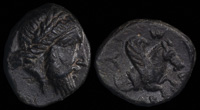
Adramytion, Mysia 360-340 BCE

Adramytteion, Mysia 350 BCE

Aesernia, Samnium 263-240 BCE

Ainianes, Thessaly 4th-early 3rd centuries BCE
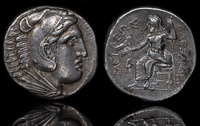
Alexander IV/Antipater 323-317 BCE

Alexandria ad Issum 2nd-1st century BCE

Ambrakia, Epeiros 278-275 BCE
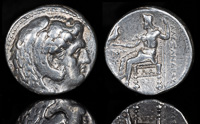
Antigenes 322-320 BCE
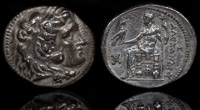
Antigonos Monophthalmos 305-300 BCE
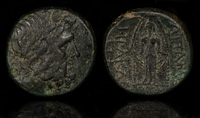
Apamea, Phrygia 133-48 BCE

Aphytis, Macedon 430-390 BCE
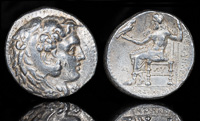
Archon or Dokimos 323-317 BCE
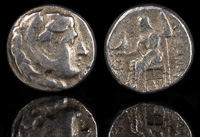
Aspesias 316-311 BCE
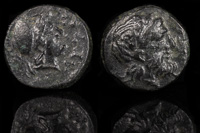
Autokane, Aeolis 400-300 BCE
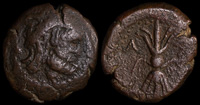
Axos, Crete 3rd-2nd cent BCE
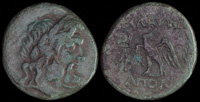
Blaundos, Lydia 200-100 BCE

Cadi, Phrygia 41-54 CE

Choma, Lykia ca 1st century BCE
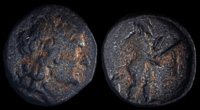
Corinth 248-243 BCE
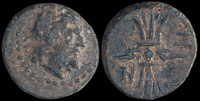
Cremna, Pisidia 26 BCE

Dia, Bithynia 85-65 BCE
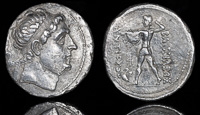
Diodotos I of Baktria 255-235 BCE

Eikonion, Lykaonia 100-0 BCE
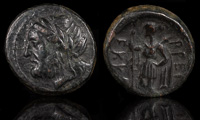
Ekkara, Thessaly 325-320 BCE

Euhippe, Caria 300 BCE

Eumeneia, Phrygia before 133 BCE
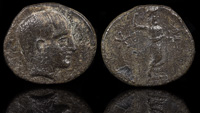
Gamerses 400-380 BCE
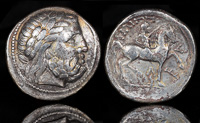
Gauls 315-275 BCE
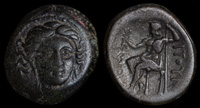
Gomphoi-Philippopolis 4th-3rd cent BCE

Gonnos, Thessaly ca 350 BCE

Gyrton, Thessaly 299-200 BCE
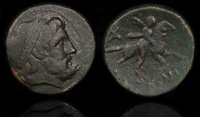
Halos, Thessaly 3rd century BCE

Iolla, Mysia 400-300 BCE

Isinda, Pisidia 100-0 BCE
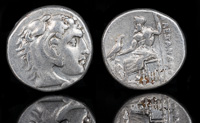
Kalas/Demarchos 325-323 BCE

Kamnaskires III w Anzaze 80/79 BCE
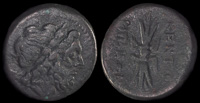
Kentoripai, Sicily 344-336 BCE
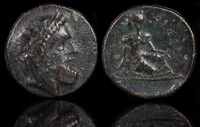
Kierion, Thessaly 4th cent BCE

Knossos, Crete 300-270 BCE
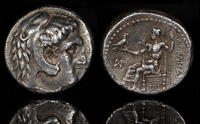
Koinos 324/323 BCE
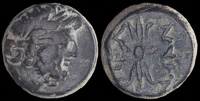
Kolossai, Phrygia late 2nd-1st centuries BCE

Komama, Pisidia 1st century BCE

Krannon, Thessaly 350-300 BCE
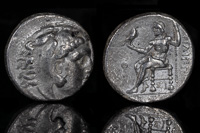
Laomedon 319/318 BCE

Lyttos, Crete 3rd century BCE
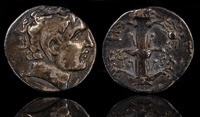
Magas 300-275 BCE

Magnesia ad Sipylos 2nd-1st centuries BCE

Magnesia ad Sipylum, Lydia 2nd-1st century BCE
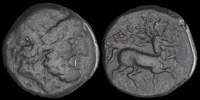
Magnetes, Thessaly 2nd century BCE

Melitaia, Thessaly 325-300 BCE

Memphis, Egypt 323/2 BCE
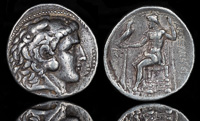
Menelaus 315-306 BCE
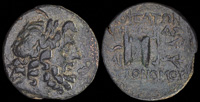
Mopsos, Kilikia 2nd-1st century BCE

Mostis 139-101 BCE
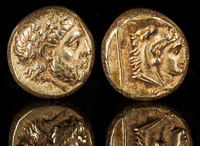
Mytilene, Lesbos 332 BCE

Nikokles of Paphos 325-317 BCE

Nikomedes II 110/9 BCE
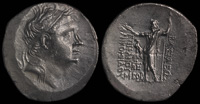
Nikomedes III 126/5 BCE

Nikomedes IV 92/91 BCE

Olosson, Thessaly 400-350 BCE
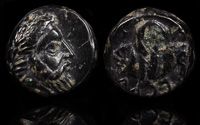
Orontas 4th century BCE

Orthosia, Karia ca 2nd century BCE
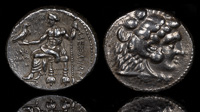
Perdikkas 321/320 BCE
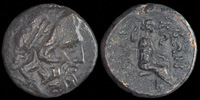
Perrhaebi, Thessaly 300-200 BCE
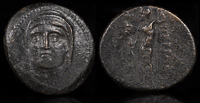
Perrhaiboi, Thessaly 400-344 BCE

Phalanna, Thessaly 4th century BCE
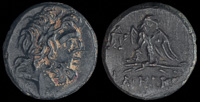
Pharnakeia, Pontos 85-65 BCE
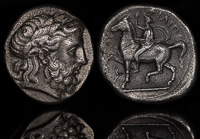
Philip II 354-349 BCE
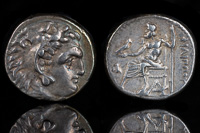
Philip III Arrhidaeos 331-321 BCE
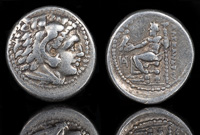
Philoxenos 325-323 BCE
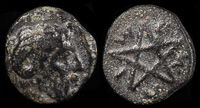
Pitane, Mysia 350-300 BCE
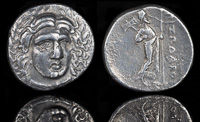
Pixodaros 341-335 BCE

Praisos, Crete 300-270 BCE

Ptolemaios 85-40 BCE

Ptolemy III Euergetes 246-222 BCE
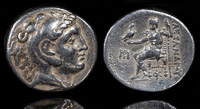
Ptolemy Keraunos 281-279 BCE

Ptolemy Keraunos 281-279 BCE

Sagalassos, Pisidia 100-0 BCE

Seleukeia on the Issos 2nd-1st centuries BCE
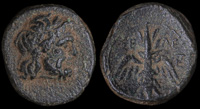
Seleukeia, Syria 312-280 BCE
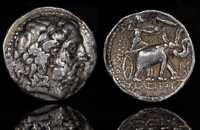
Seleukos I Nikator 296-281 BCE

Sesamos, Paphlagonia 4th c. BCE

Stamenes/Archon 324/323 BCE
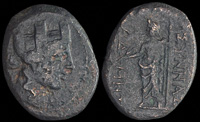
Synnada, Phrygia 2nd-1st centuries BCE

Tabai, Karia 1st Century BCE

Tarkondimotos 39-31 BCE

Termessos, Pisidia 71-36 BCE
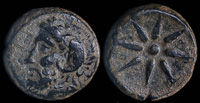
Thymbra, Troas 4th century BCE
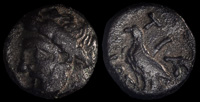
Tios, Bithynia 300 BCE

Tralleis, Lydia 3rd century BCE
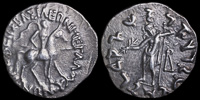
Vonones 85-60 BCE
